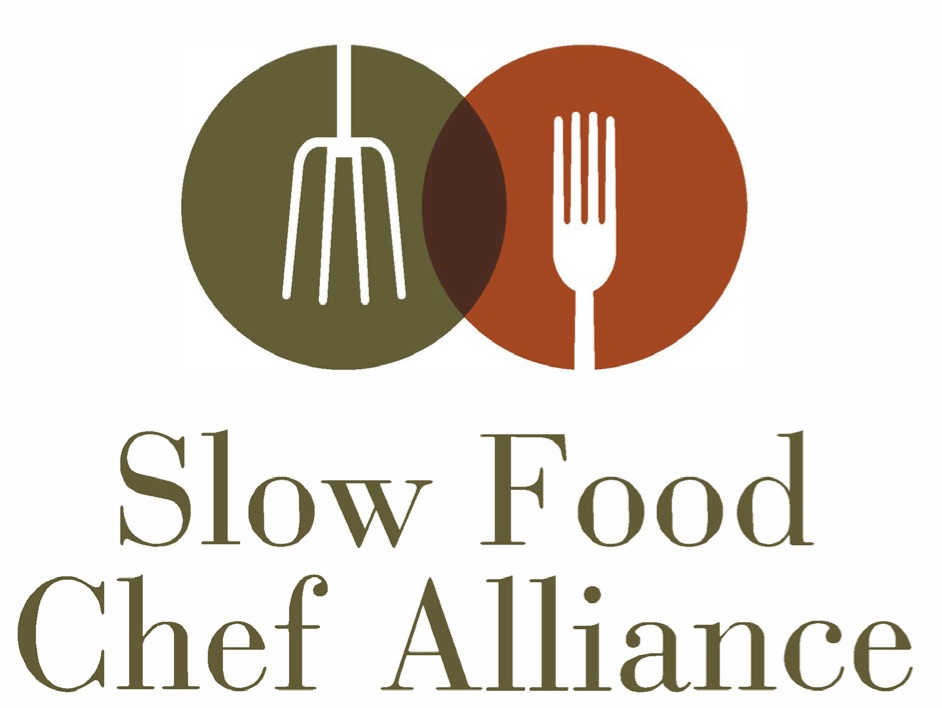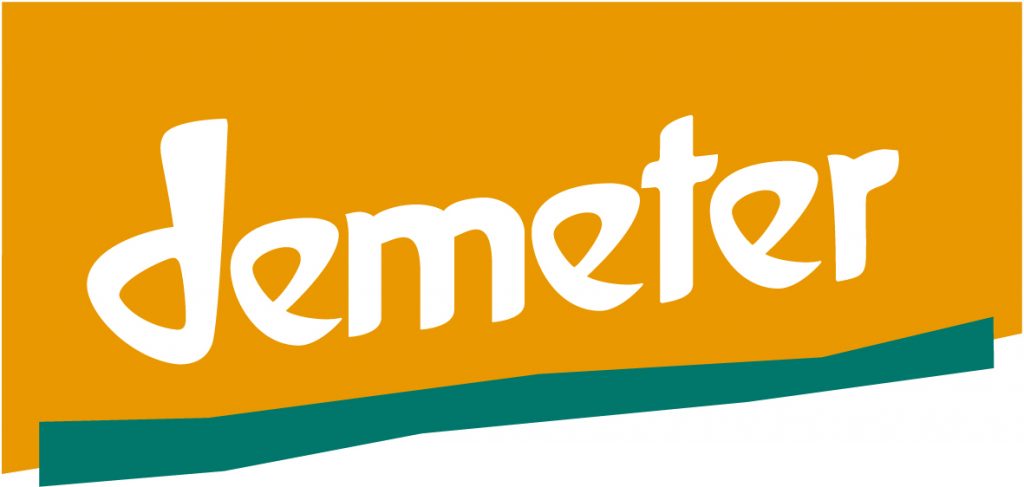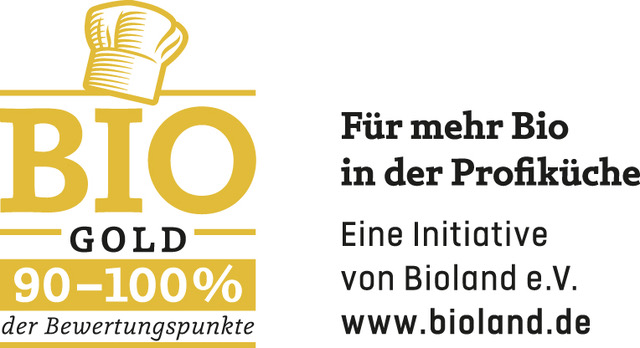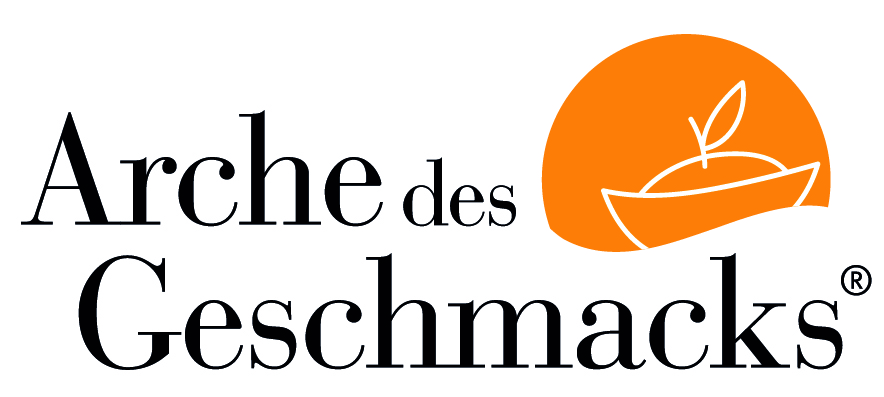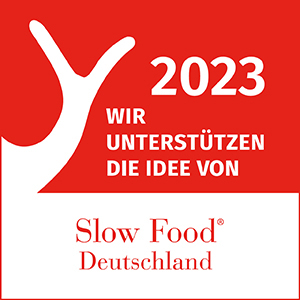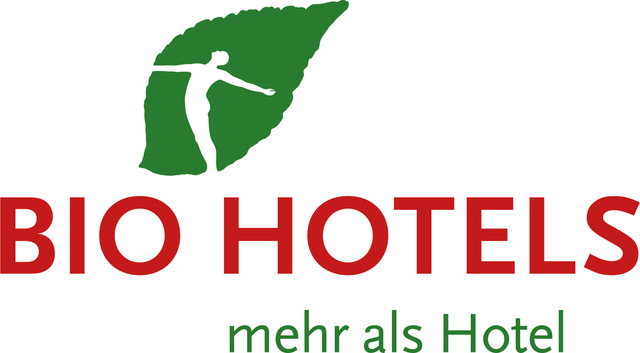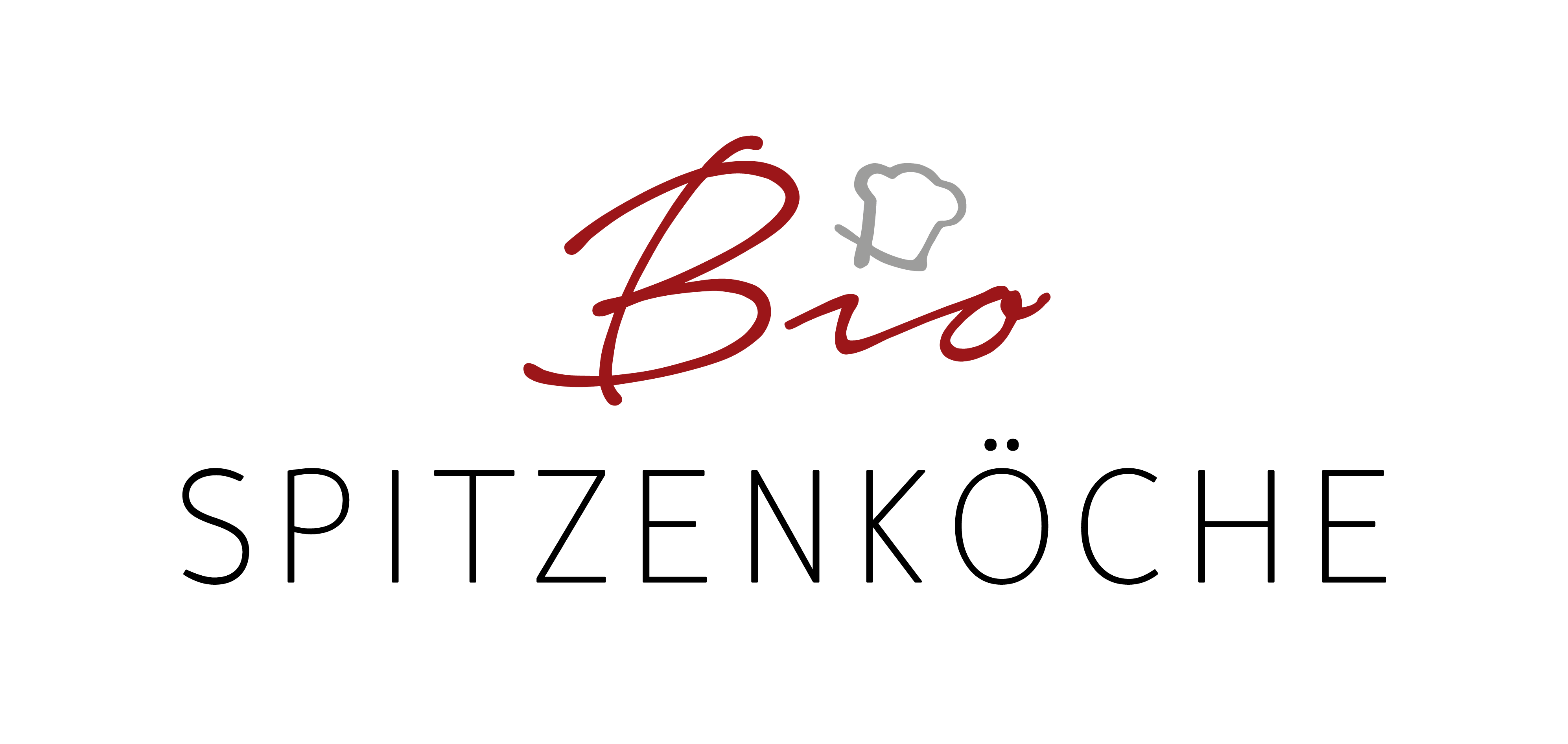Was Nachhaltigkeit für uns bedeutet
Nachhaltigkeit ist zentrales Kriterium für alle Entscheidungen, die wir auf unserem Hofgut treffen und wird niemals hintenangestellt. Wir wissen, dass wir einen systematischen Wandel zu einer Welt benötigen, die fair für Mensch und Natur ist. Unser Hofgut soll Teil einer Zukunft sein, die uns und unseren Mitmenschen und Tieren ein gerechtes und ökologisch respektvolles Dasein ermöglicht. Wir sind nicht perfekt, aber wir lernen täglich dazu und arbeiten kontinuierlich an Verbesserungen. Unser Nachhaltigkeitskonzept stützt sich auf sechs Säulen:
- Naturschutz: Wir fördern Artenvielfalt, schützen wertvolle Ökosysteme und rehabilitieren verlorene Landschaften.
- Klimaschutz: Wir reduzieren unsere Treibhausgasemissionen und unterstützen Maßnahmen zur Anpassung an den Klimawandel.
- Gerechtigkeit: Wir fördern Strukturen für soziale und ökonomische Gerechtigkeit und setzen uns für verbessertes Tierwohl ein.
- Resilienz: Wir unterstützen nachhaltige Produktion in unserer Region, sowie faire und robuste Lieferketten für unsere internationalen Produkte.
- Kreislaufförderung: Wir setzen uns für die Reduktion von Müll und Wiederverwertung von Materialien ein, um die Kreislaufwirtschaft voranzutreiben.
- Gesundheit: Wir nutzen Produkte und Materialien, die die Gesundheit unserer Produzenten, Mitarbeiter und Gäste fördert.
Worte sind nur nützlich, wenn ihnen auch Taten folgen. Deshalb stellen wir hier ganz konkret unsere Standards, Prozesse und Projekte vor, die wir in den vier verschiedenen Bereichen unseres Hofguts umsetzen, um unsere Nachhaltigkeitsziele zu fördern.
Umsetzung auf dem HofGut
Essen & Getränke
Biologische Landwirtschaft stellt die Grundlage unserer Nachhaltigkeitsarbeit im Bereich Essen & Getränke dar. 2015 erhielten wir unsere Bio-Zertifizierung, und bauten diese mit ständigem Engagement aus. Heute sind wir Teil einer kleinen Gruppe von nur 11 Restaurants in Deutschland, die Demeter-zertifiziert sind. Dies bedeutet, dass 100% unserer verwendeten Lebensmittel und Getränke unter den strengsten Standards für Umweltschutz und Tierwohl hergestellt werden, die es in der Landwirtschaft gibt.
"Wir kochen all unsere Gerichte von Grund auf, ohne künstliche Zusatzstoffe und verwenden auch hier alle Produkte komplett."
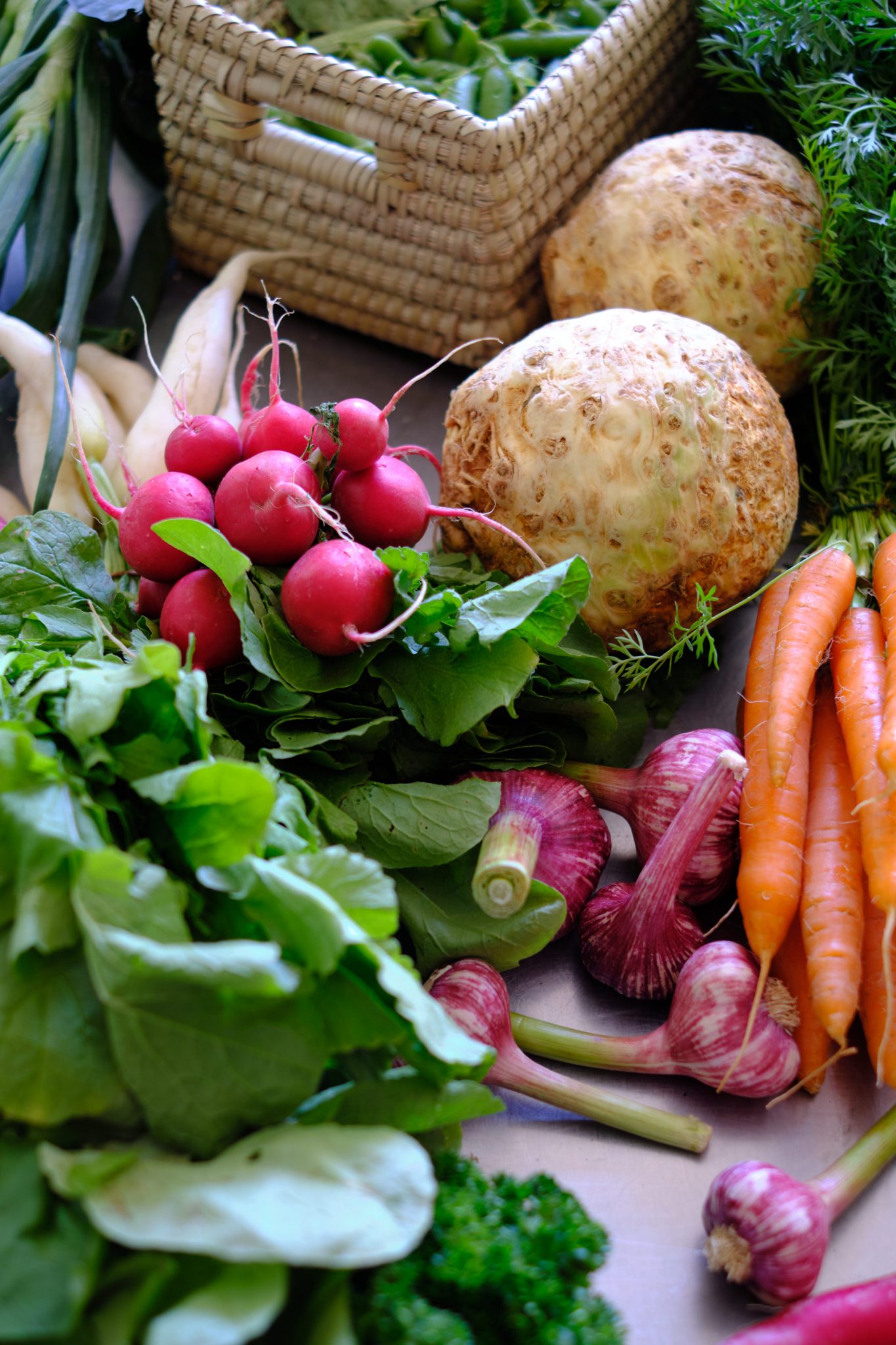
In über zwei Jahrzehnten der Veranstaltungsplanung- und Durchführung haben wir eine besondere Philosophie des Kochens und der Menüplanung entwickelt. Diese verwöhnt die Gaumen unserer Gäste und ermöglicht den Schutz wertvoller Ressourcen, sowie ein besseres Arbeiten für unsere Lieferanten und unser Küchenteam. Jede Woche warten wir mit Spannung darauf, von der Ernte unserer Produzenten zu hören und entwickeln daraufhin ein individuelles Überraschungsmenü für unsere Veranstaltungen. Jedes Menü schöpft zum Vollsten aus diesem saisonalen Repertoire und ist genau auf die Größe der Veranstaltungen ausgerichtet. Somit vermeiden wir Lebensmittelverschwendung auf den Bauernhöfen und bei unseren Events, was einen wichtigen Beitrag zum Klimaschutz leistet.
Wir kochen all unsere Gerichte von Grund auf, ohne künstliche Zusatzstoffe und verwenden auch hier alle Produkte komplett. Aus Gemüseschalen und Knochen kochen wir herzhafte Boullion, aus restlichem Brot bereiten wir Semmelbrösel zu und wenn doch einmal etwas übrig bleibt, freuen sich unsere Hühner, oder es gelangt über unseren Kompost zurück in den natürlichen Kreislauf. Ganz besonders freuen wir uns stets, alte und samenfeste Obst- und Gemüsesorten zu verwenden. Diese Art des Kochens schont nicht nur Ressourcen, sondern schmeckt um Welten besser, ist gesünder und fördert die Kreativität und Fähigkeiten unseres Teams.
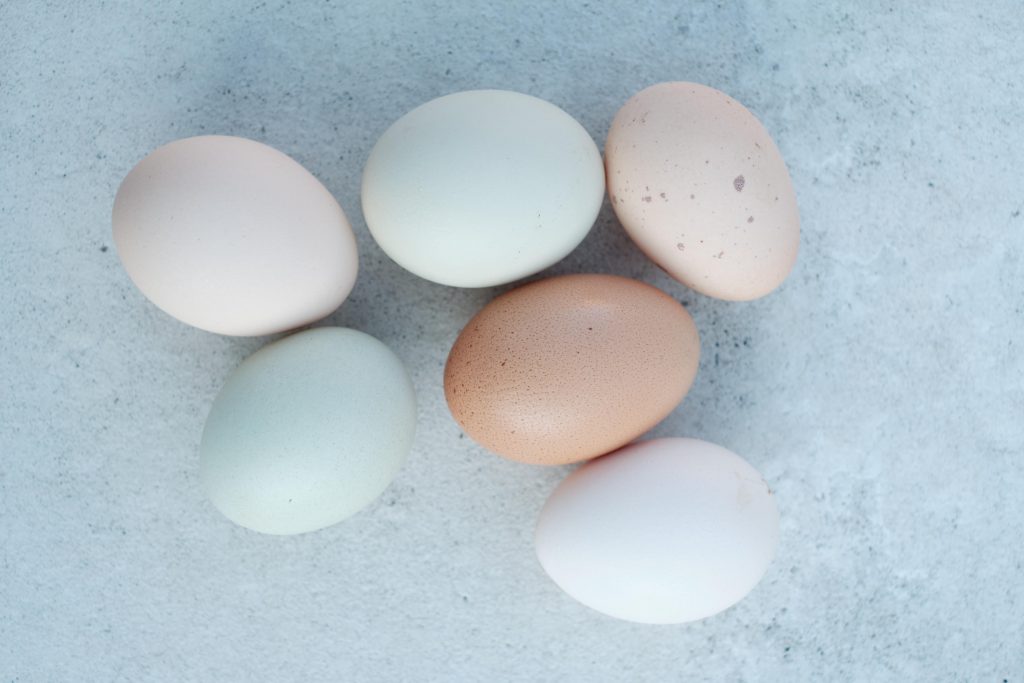
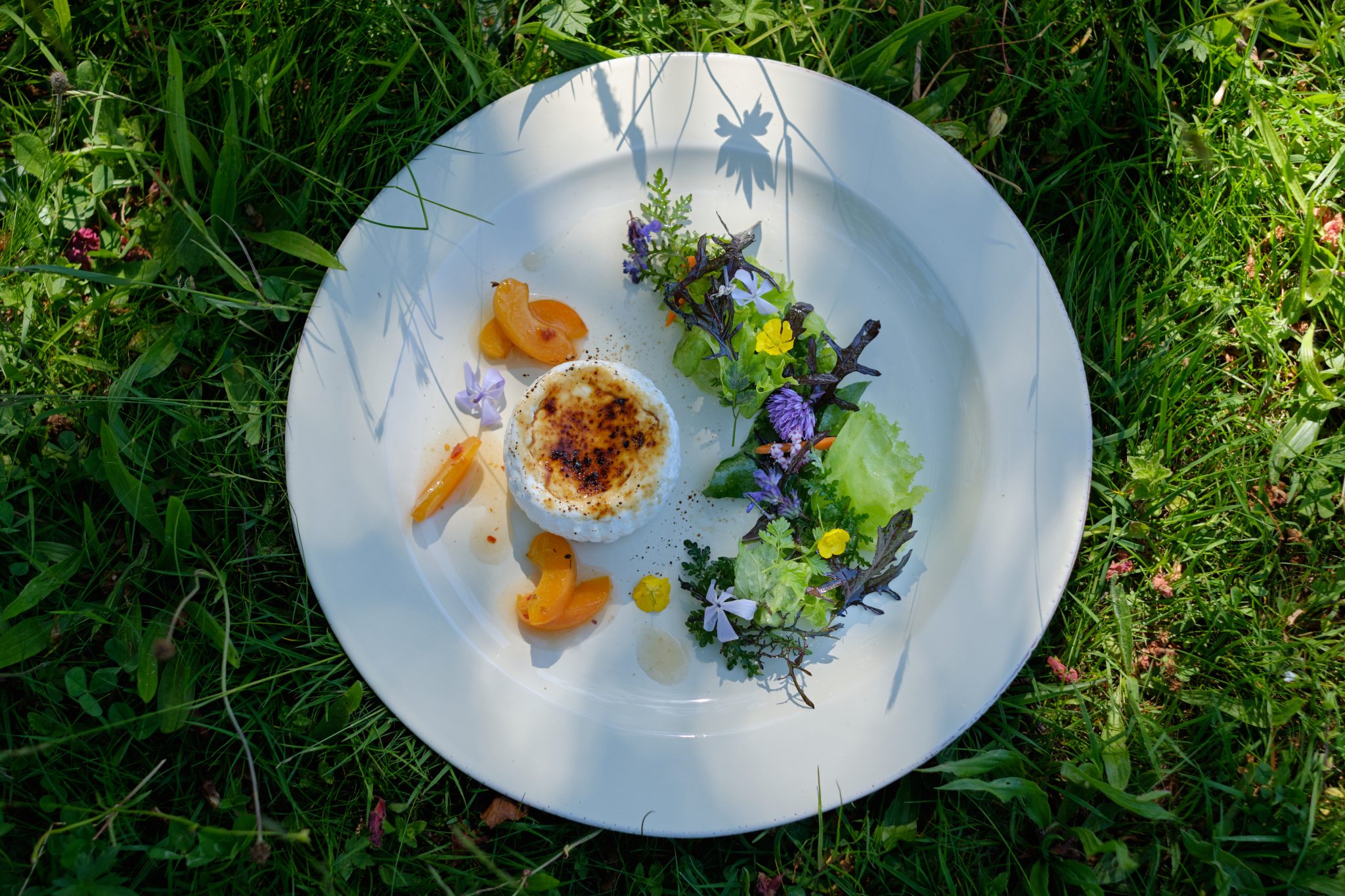
"Wir wissen, dass unsere Gesellschaft weniger und dafür bessere Tierprodukte konsumieren muss, um Tiere respektvoll behandeln zu können und unserem Planeten eine Zukunft zu ermöglichen."
Auch unsere international hergestellten Lebensmittel suchen wir mit größter Sorgfalt aus. Wenn ein Rezept nach Nuss ruft, verwenden unsere Köche bevorzugt Hylea Paranüsse, um Regenwälder in Bolivien und Brasilien vor der Rodung zu schützen. Unsere Bourbon-Vanille kaufen wir direkt von kleinen ökologischen Produzenten auf der indonesischen Insel Lombok ein, die wir 2019 vor Ort besucht haben.
Ein weiteres Merkmal unserer Küche ist unsere Leidenschaft für vegane und vegetarische Ernährung. Wir wissen, dass unsere Gesellschaft weniger und dafür bessere Tierprodukte konsumieren muss, um Tiere respektvoll behandeln zu können und unserem Planeten eine Zukunft zu ermöglichen. Deshalb verwenden wir meist in nur einem Gang jeder Veranstaltung ein Fleischprodukt, und bieten unseren Gästen vollwertige und leckere vegane und vegetarische Menüs an. Jedes Jahr richten wir mehrere komplett vegane oder vegetarische Veranstaltungen aus – sowohl bezüglich der Essens – als auch Getränkeauswahl.
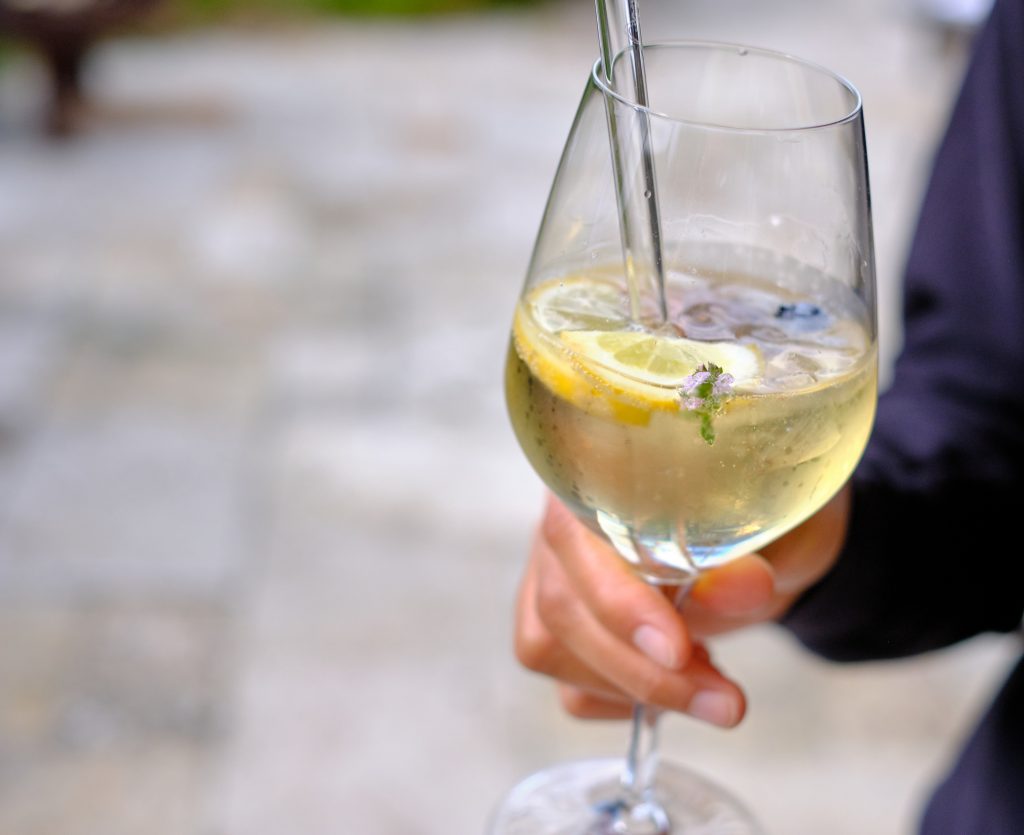
Veranstaltungsräume und Übernachtungshäuser
Die Gebäude, in denen unsere Gäste schmausen, feiern und sich erholen sind ein wichtiger Bestandteil unserer Nachhaltigkeitsstrategie. Den Großteil unserer Gebäude haben wir mit viel Liebe zum Detail restauriert, was ihren ökologischen Fußabdruck deutlich verringert. Hierfür verwenden wir bevorzugt natürliche und recycelte Materialien, wie zum Beispiel Holz aus ehemaligen Scheunen und Stallungen. Unser Hofschreiner fertigt den Großteil der Möbel aus heimischen Hölzern an. Bei importierten Produkten achten wir auf das FSC 100% Siegel. Unsere Gebäude betreiben wir mit ENBW Ökostrom und energieeffizienten Technologien. Konzepte für grüne Energieerzeugung auf dem Hofgut entwickeln wir aktuell.
Wir versuchen, so wenig Müll wie möglich zu produzieren. Wir präferieren Produkte mit wenig Verpackung und ohne Plastikverpackungen, und kompostieren Biomüll direkt auf unserem Hof. Wir verwenden ausschließlich recyceltes Papier, und unser Klopapier unterstützt durch Viva con Agua verbesserte sanitäre Anlagen im Globalen Süden. Handtücher in unseren Toiletten und Servietten auf den Tischen sind aus Stoff und somit wiederverwertbar.
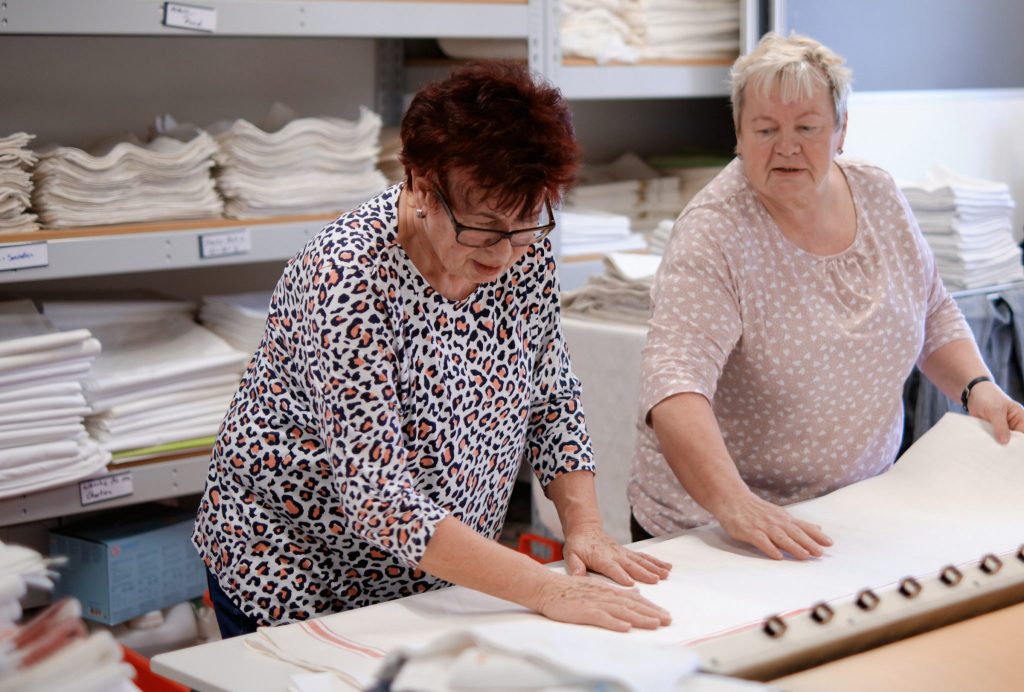
Unsere Wasch- und Reinigungsmittel sowie Kosmetikprodukte sind sorgfältig ausgewählt, um unsere Wasserversorgung und die Gesundheit unserer Gäste und Mitarbeiter zu schützen. Die ökologischen Firmen Sonett und Speick sind hierbei unsere Partner.
Gärten
Unsere Gärten verzaubern das Hofgut, geben unseren Gerichten feines Aroma und bieten einer Vielzahl von Pflanzen und Tieren wichtigen Lebensraum. Gestaltet haben wir sie mit dem Ziel sowohl Produktivität und Naturschutz zu fördern, sodass wir Kräuter, Gemüse, Obst und Blumen frisch ernten können und gleichzeitig bedrohte Insekten, Vögel und Hühner beheimaten können.
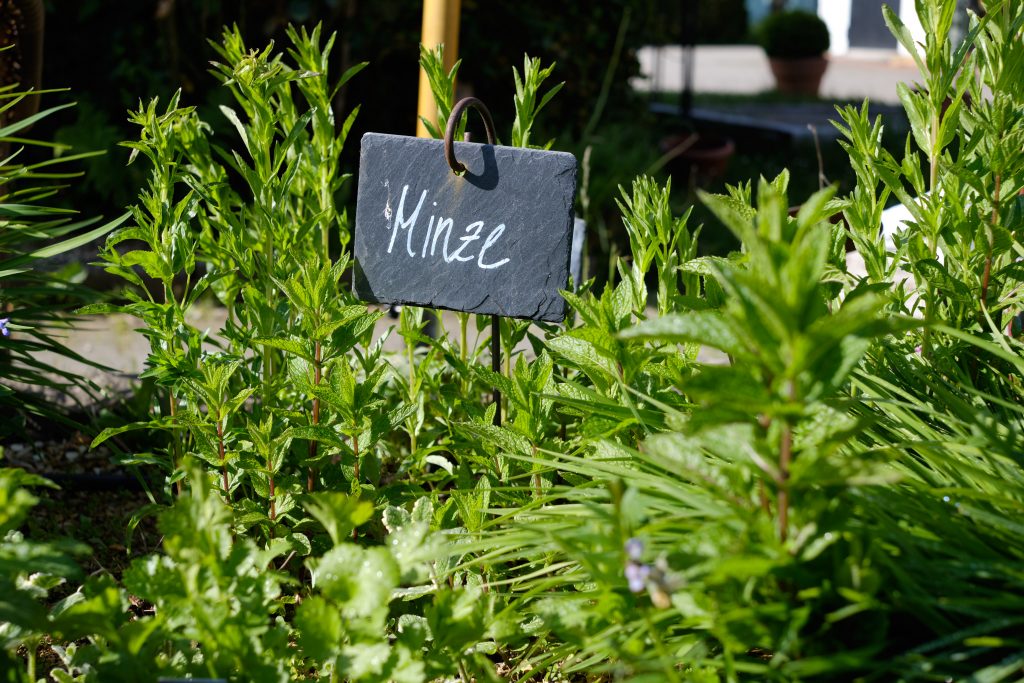
Mehr als 50 verschiedene Kräutersorten sind seit über fünf Jahren in allen verschiedenen Gärten unseres Hofguts verteilt, womit wir den gesamten Kräuterbedarf unserer Küche decken. Zusätzlich stellt unsere Oma Lore hiervon den feinsten, handgepflückten Kräutertee her, den wir je getrunken haben.
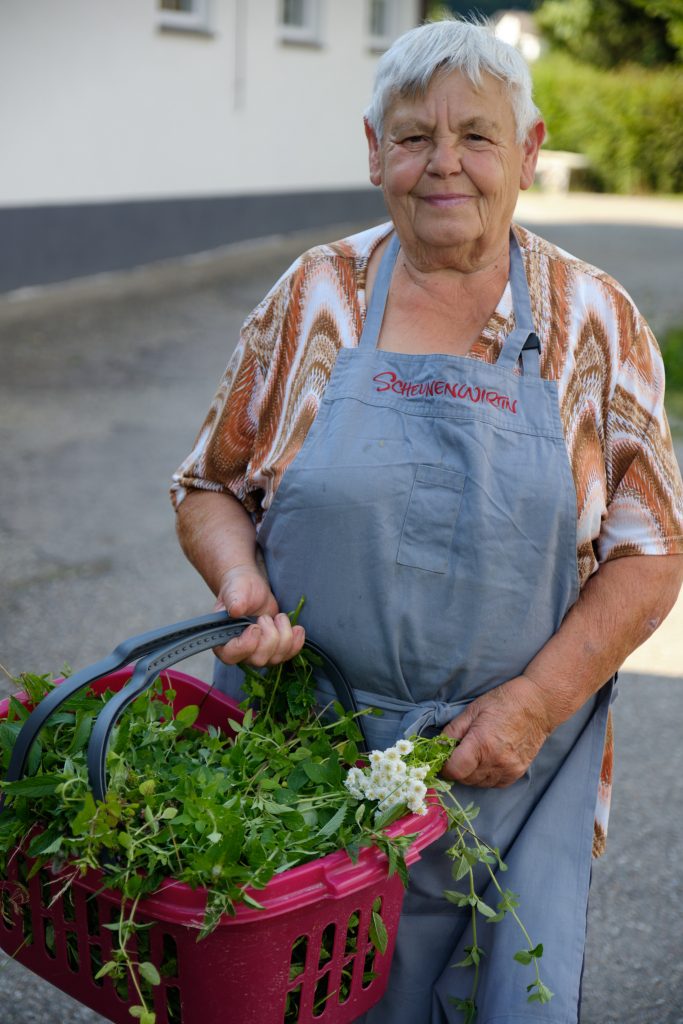
2020 haben wir angefangen, einen Permakultur-Garten auf 1.600 Quadratmeter Land anzulegen. Hier pflanzen wir über 100 alte und samenfeste Obst- und Gemüsesorten und kümmern uns um ein gesundes Erdreich. Somit können wir frisch ernten und die Produkte ohne Zwischenkühlung verwenden, was den Geschmack und Nährstoffe bereichert und Energie spart. Viele Insekten, Vögel und Kleintiere, die in Feldern voller Monokultur und modernen, pflegearmen Gärten nicht mehr genügend Nahrung finden, überleben aufgrund unseres Permakultur-Gartens.
"Hier pflanzen wir über 100 alte und samenfeste Obst- und Gemüsesorten und kümmern uns um ein gesundes Erdreich."
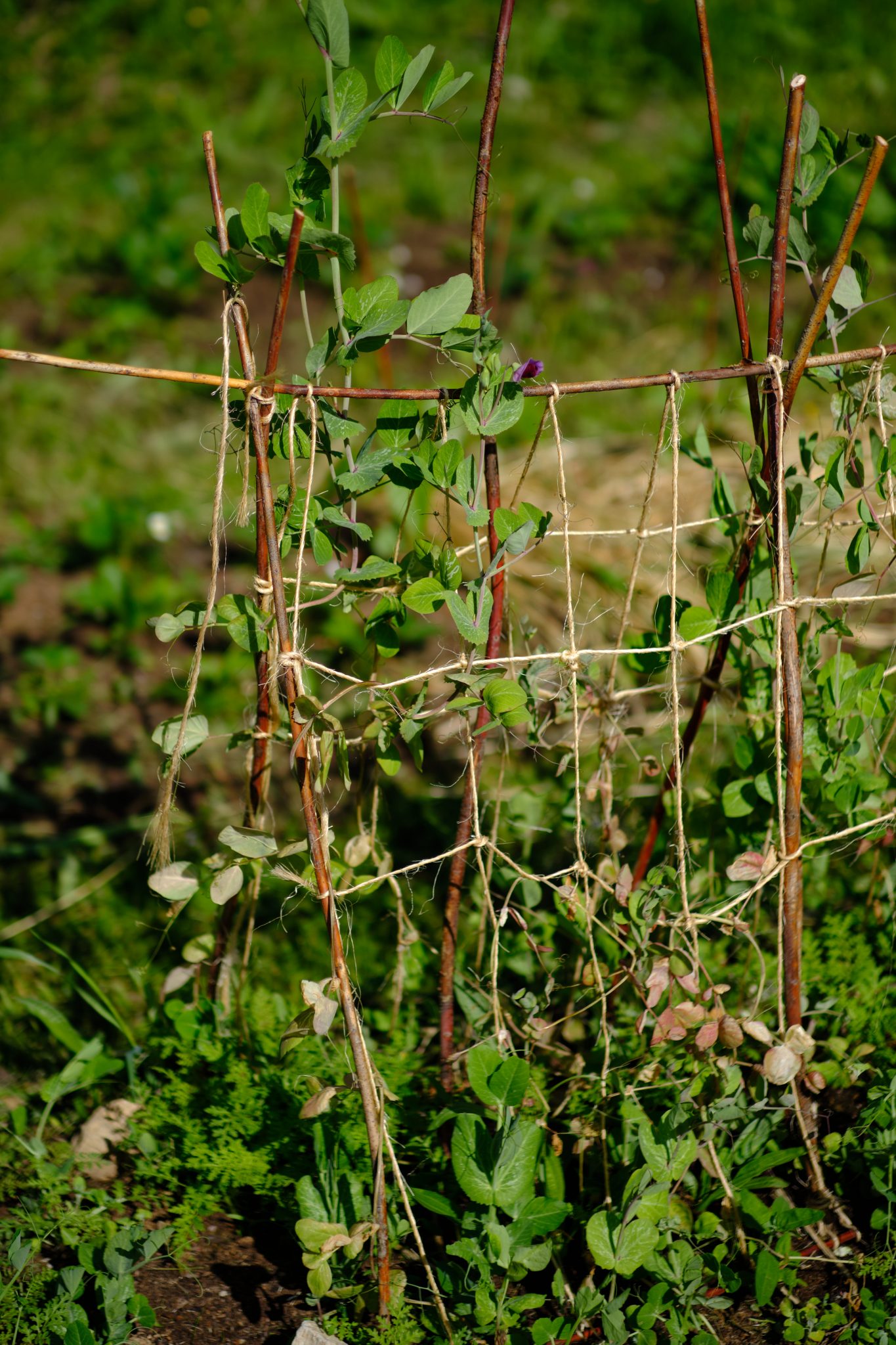
Bienen sterben aus, was die Natur als Ganzes bedroht und unsere Nahrungsversorgung riskiert. Ohne Bienen gibt es fast kein Essen. Deshalb sind unsere Gärten voller Blumen und Bäume, die Bienen Nahrung bieten und in denen sie keinerlei chemischer Giftstoffe ausgesetzt sind. Zudem halten wir vier Bienenvölker auf unseren biozertifizierten Flächen, die wir bis Ende 2020 auf fünf Völker erweitern werden. Wir haben uns für eine wesensgemäße Haltung entschieden, was ein Schritt über artgerechter Haltung liegt. Dies bedeutet, dass unsere Bienen sich natürlich vermehren können, wir sie frei schwärmen lassen, und sie den Großteil ihres Honigs behalten dürfen.
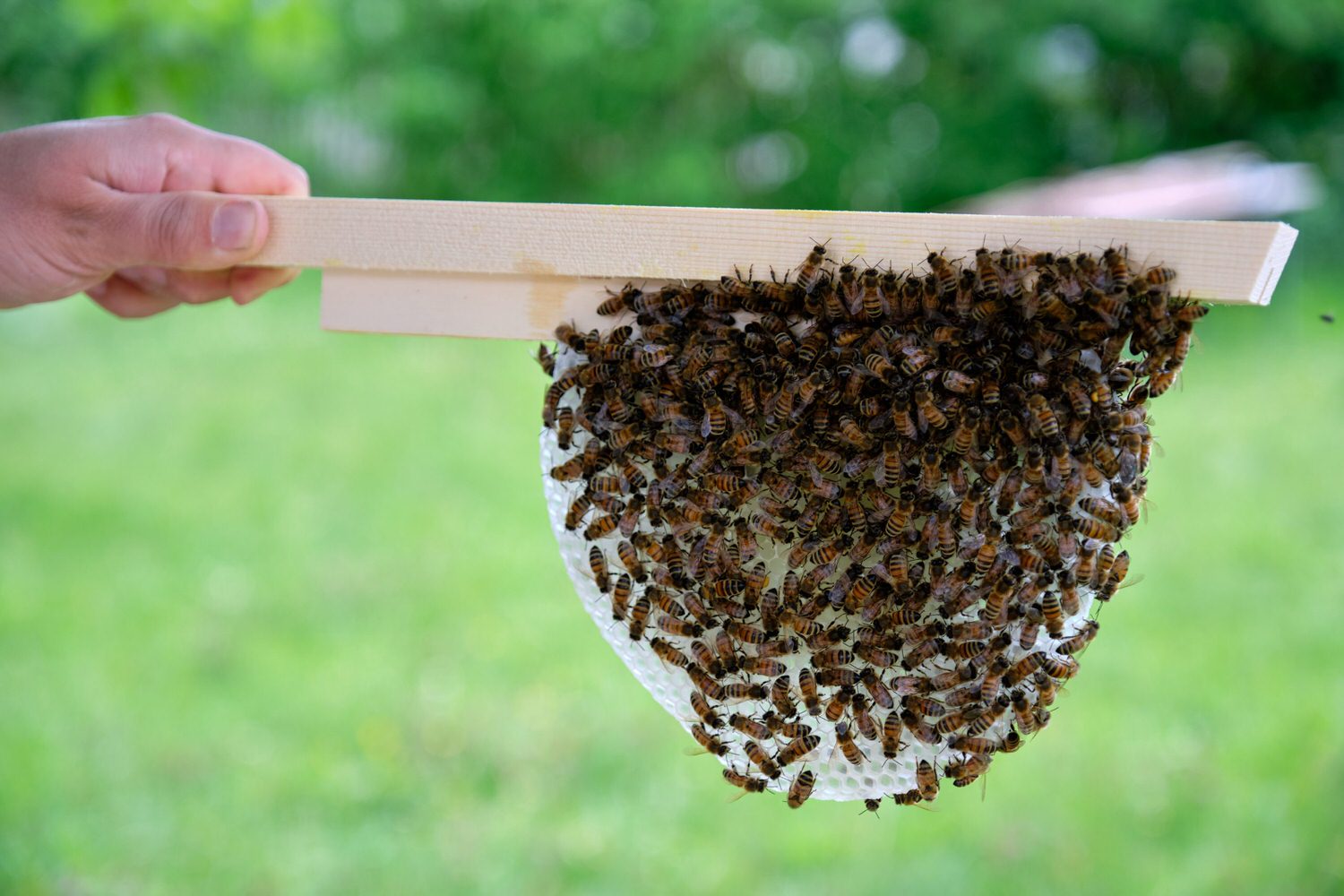
Unser Hofgut wird weiterhin von vielen Hühnern bewohnt. Sie bereichern mit ihrem Scharren, Picken und Dung die Struktur und den Nährstoffgehalt unserer Böden und unterstützen ein natürliches Gleichgewicht der Insekten. Wir planen bis Ende 2021 den kompletten Eierbedarf unserer Küche mit Eigenhaltung zu decken und damit zum Erhalt von mehr als zehn alten Zweinutzrassen einen Beitrag zum Artenschutz zu leisten. Durch die Unterstützung der Bruderhahn-Aufzucht produzieren wir neben Eiern eine kleine Menge Hähnchenfleisch. Unsere Hühner haben ein glückliches Leben, laufen frei und ernähren sich abwechslungsreich von unseren Kräutergärten, dem Permakultur-Garten, Resten aus unserer Küche und hochwertigem Biofutter. Dies merkt man ihrer Gesundheit und der Qualität ihrer Eier deutlich an.
"Eine Streuobstwiese beheimatet zwischen 2.000 und 5.000 Tierarten, sowie seltene Gräser und Wiesenkräuter."
Auf unseren erweiterten Flächen haben wir vor fünf Jahren außerdem eine Streuobstwiese angelegt, auf der wir 20 verschiedene Arten von Birnen, Quitten und Äpfeln anbauen. Die Anzahl der Steuobstwiesen in Deutschland geht seit Mitte des letzten Jahrhunderts stark zurück, sodass wir bereits etwa drei Viertel aller Bestände verloren haben. Eine Streuobstwiese beheimatet zwischen 2.000 und 5.000 Tierarten, sowie seltene Gräser und Wiesenkräuter. Insekten, Spinnen, Frösche, Echsen, Vögel und kleinen Säugetiere wie Fledermäuse, Wiesel und Hasen verlieren folglich ihre Lebensräume. Mit unserer Streuobstwiese wollen wir einen kleinen Beitrag zum Naturschutz und Erhalt dieser natürlichen Vielfalt leisten.
Team
Ein gerechtes und respektvolles Miteinander ist ein ebenso wichtiger Teil unserer Nachhaltigkeitsphilosophie wie der Schutz natürlicher Ressourcen. Folglich tun wir jeden Tag unser Bestes, um gute Arbeitsplätze auf unserem Hofgut zu bieten, sowie mit unseren Lieferanten ein Netzwerk fairer Arbeitsplätze zu fördern.
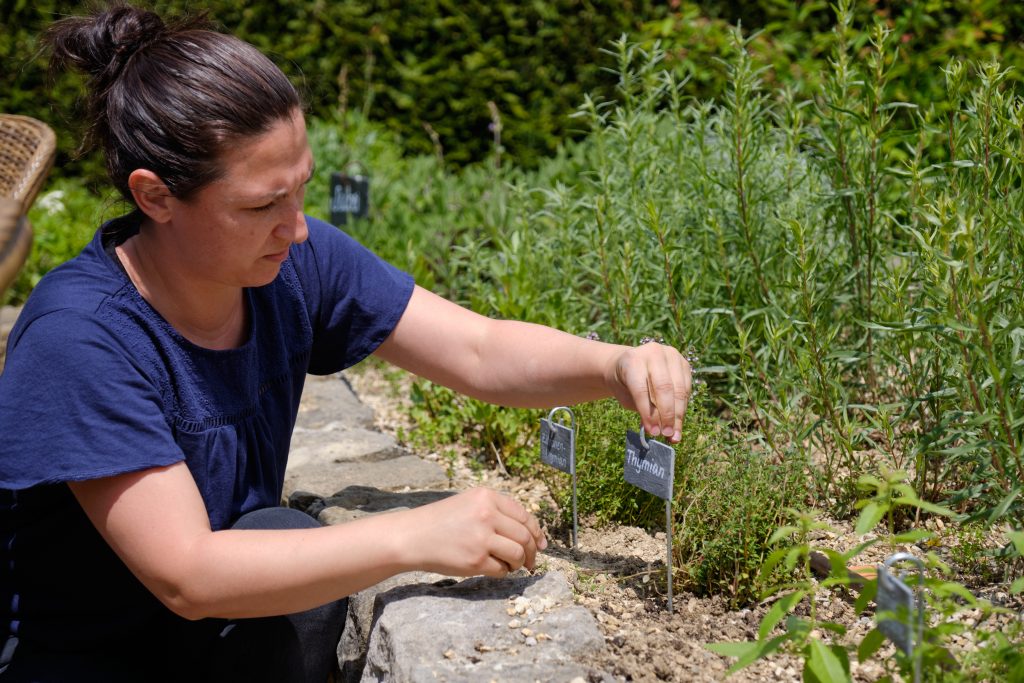
"Bei uns ist jede Stelle abwechslungsreich und flexibel, was das Wohlbefinden, die Kreativität und Kenntnisse unserer Mitarbeiter fördert."
Die komplexe Wertschöpfung, die wir auf unserem Hofgut betreiben, erlaubt es uns nicht nur eine größere Anzahl von Arbeitsplätzen zu schaffen, sondern diese auch vielfältiger zu gestalten. Bei uns ist jede Stelle abwechslungsreich und flexibel, was das Wohlbefinden, die Kreativität und Kenntnisse unserer Mitarbeiter fördert. Beispielsweise üben sich unsere Köche gleichzeitig im kochen, backen, metzgern und gärtnern, und unsere administrativen Kräfte betreuen Gäste, organisieren Veranstaltungen, gestalten Räume und ziehen Hühner auf.
"Jeder kleine Beitrag und jede kleine Entscheidung trägt etwas zum großen Ganzen bei."
Wir bezahlen unser Team deutlich über dem Mindestlohn, unterstützen sie bei der Altersversorgung, und bieten täglich ein gemeinsames Mittagessen und kostenlose Getränkeauswahl. Aktuell betreut unser Küchenteam zwei Auszubildende. Auch ein Duales Studium im Event- oder Gastronomiemanagement ist bei uns möglich. Außerdem ermöglichen wir unseren Teammitgliedern ihre gewünschte Weiterbildung, sei es anhand innerbetrieblicher Fortbildungen und Betriebsausflügen oder externen Schulungen und Sprachkursen.
Bei uns ist es nicht anders als bei Ihnen. Jeder kleine Beitrag und jede kleine Entscheidung trägt etwas zum großen Ganzen bei. Die Kunst des Könnens, liegt oft im Wollen.
